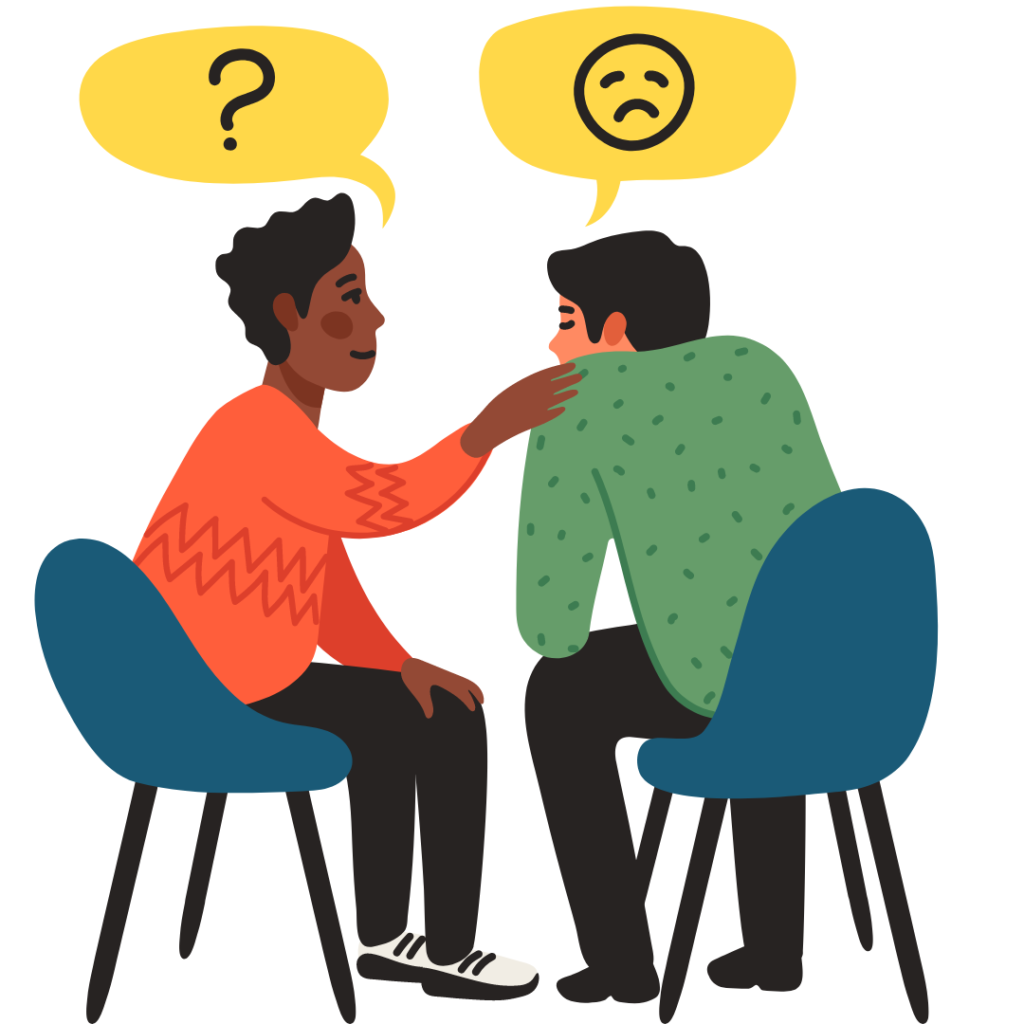How to learn not to give in to the eating disorder, especially when emotions are running high
By Zuzanna Gajowiec

It is a difficult task for most parents to accept all the emotions that our children experience. Even though all emotions are natural, useful and deliver an important message about our needs, we experience some of them as difficult and unpleasant. When our children display emotions that we perceive as difficult, it can trigger a reaction in us – potentially also a difficult emotion😊.
We want to see our kids happy and functioning well and, when they become distressed, we want to take that “pain away” and “fix” it for them and “make it all better”.
When we focus on fixing something, we have a very different energy to the energy we have when we listen. When we want to fix, the energy is usually pushier. It makes it harder for us parents to contain our emotions (to deal with how our children’s feelings make us feel and to stay calm). For the kids, it is much harder to accept what we are proposing.
When our loved ones are well, experiencing them display “difficult” emotions happens rarely enough and not as intensely.
When our loved one suffers from an eating disorder, they are distressed all the time. As parents we have to contain A LOT of super intense and super scary things and rarely have a break.
We know from science (The Minnesota Semi-Starvation study) that when a brain becomes malnourished, our thinking and emotional reactivity changes drastically. Brains become very rigid, thinking patterns change – they become more obsessive and irrational. People become easily triggered. People act “out of character”, become impulsive, angry, moody, sad, anxious. The usual tolerance levels that people developed before are suddenly not accessible to them anymore.
Parents’ reactions matter for all the above reasons. One distressed brain will not be calmed by another distressed brain.

But how to stay calm when someone is completely irrational, shouts, self-harms or is so unwell that you know there’s no time to waste and they have to eat now?
It is not easy for sure. What I am proposing here is to be mindful and to try to separate the feeling from the behaviour. Accept the feelings. Be curious about the behaviour. What important need might be hidden underneath this behaviour? That supports the brain and makes it easier to continue the recovery process?
Here’s an example:
Your child agreed to eat a sandwich for lunch this morning and now, when the sandwich is on their plate, they are very distressed or angry and shouting. They will not eat it.
For parents, both the feelings and the behaviour may be very hard to understand and contain. We may have urges to push and to fix. And there may be an urgency to get them fed (“My child absolutely has to eat this; we are so close to going to the hospital”).
Our usual reactions may vary from pleading with them – to threatening. From explaining and reminding to becoming triggered ourselves and losing hope.

What would it look like if we validated the feelings (many times) and only then proceeded?
“I can see that you became very scared/angry/withdrawn (or any other feeling or feelings that have manifested). I absolutely get why you feel scared when you have to act against the eating disorder voice. It makes so much sense to be terrified to bite the bread and eat it, even though you know it is ok/we agreed on it. I get why you may feel angry with me, it probably feels like I am the problem. I am encouraging you to eat something you fear most, and it may feel unfair.’’
The key thing here is to look out for the reaction: When they feel understood they usually calm down a tiny bit. If you notice any connection – a brief look, a nod (remember, even when someone is shaking their head “no”, it is still connection).

Only when there is some response that is less emotional than their original feelings, take the next step.
If you feel there is no reaction – or maybe things feel worse, continue validating how it feels for them.
Validating how it feels does not mean agreeing with it. This is important to remember.
“I understand it is so scary and you hate eating in front of people.” This just names the feeling and does not mean “yes you can eat alone or yes, you don’t need to eat the whole sandwich – it is too much for you”.
Once you feel that they are a bit calmer or a bit more in contact with you and what you are saying, you can continue with emotional support: “I know it is hard, but I am here with you and we can do it together” Or “It is hard now, but you already overcame so many fears, we will manage to overcome this one together too etc.”
And only after that proceed with solutions…
For example: “maybe we can watch something funny on YouTube as we try to eat” or “maybe we can cut the sandwich into 4 to make the pieces more manageable”.
Remember, we are not proposing to change it to something easier – unless there is no other choice. We do not want to strengthen avoidance.

Validating feelings takes away a lot of power struggles.
When we feel understood, our nervous system shifts from fight/flight to connection and is already much more regulated. Only then can we hear what the other person is proposing. If we do not feel understood, we focus on DEFENCE and PROTECTION. Therefore we become more and more dysregulated. (This is an example of Emotional Coaching proposed by Emotionally Focused Family Therapy).
But it also works if you accept the emotion internally (in less stressful times) and don’t argue with the person about the feeling or don’t require justification for the emotion – just accept.
(It may look like this in your head: “Ah… so she feels very angry now, it is hard for me to understand, because I did not intend to make her feel angry, but emotions are what they are so it is better for me to just accept that this is the emotion she feels and not question it, maybe validate”).
Parents often have a problem with their child experiencing distress – either they push and add fuel to the fire or they become scared by the intensity of the emotions and give in.
The approach that we’ve just shared helps you to not avoid the emotion and not ignore it, but at the same time not give into the eating disorder. Hope that helps😊
PS: Try to avoid language that denies others the right to feel what they feel “there is no reason to be angry”, “there is nothing to be scared of”; “you promised before and now you are angry with me” etc.
Let us know what you think!
Zuzanna





